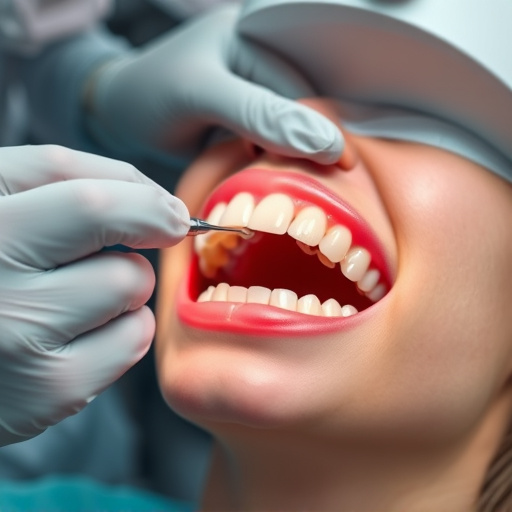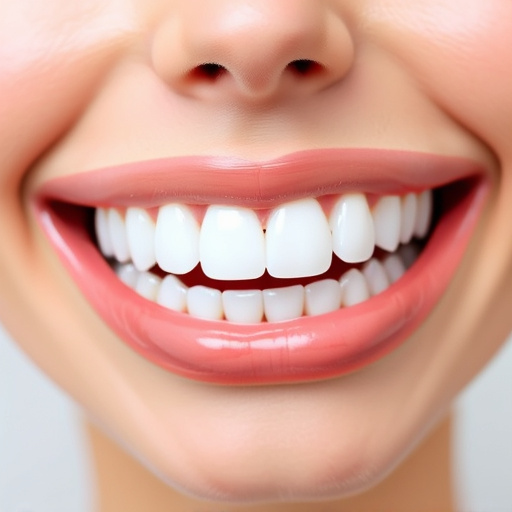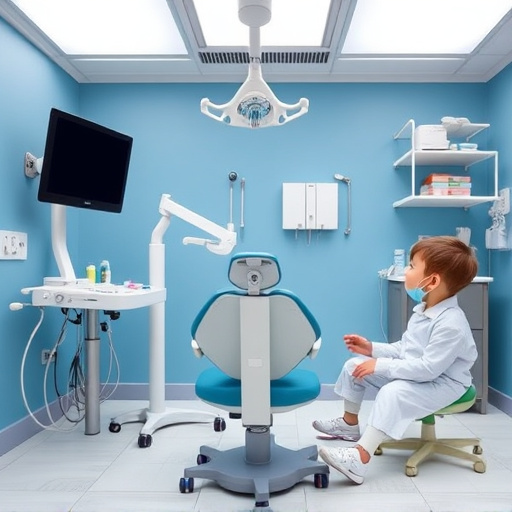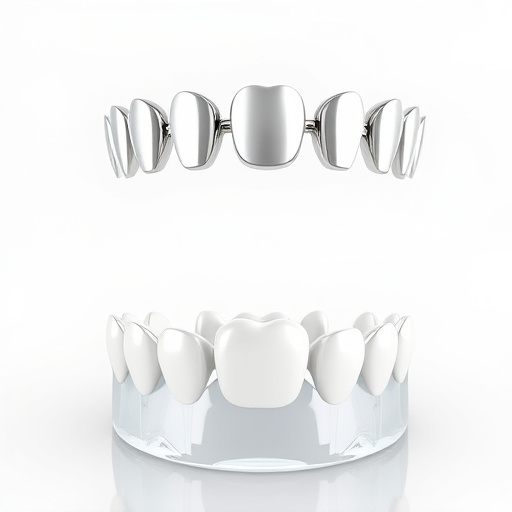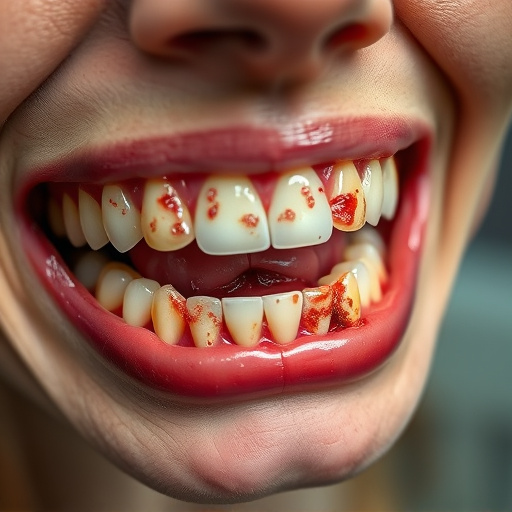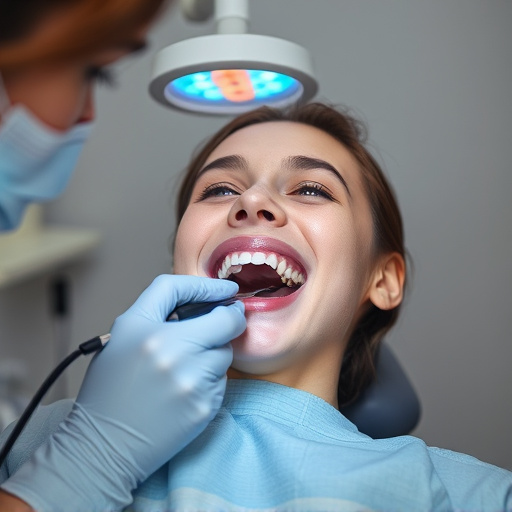Walk-in dental appointments revolutionize modern dentistry by offering flexible, same-day access for prompt care, from emergencies to preventive treatments. These clinics cater to unpredictable schedules and procrastination, encouraging regular check-ups and early detection of small issues like pain, sensitive teeth, and cavities. Early intervention prevents complex procedures like wisdom tooth removal, saving patients costs and time. Walk-in appointments also educate patients on oral health, empowering them to take charge of their dental well-being through clear communication, hygiene demonstrations, and access to educational resources.
Walk-in dental appointments are transforming the way we access oral healthcare. This innovative model offers immediate care, catering to patients with urgent needs or those without regular dentists. Beyond emergency treatment, walk-in clinics play a pivotal role in preventive care, facilitating early detection of dental issues. By prioritizing regular check-ups and oral health education, these appointments ensure better overall health outcomes. This article explores the multifaceted benefits and strategies for optimizing walk-in dental services to support community wellness.
- Understanding Walk-In Dental Appointments and Their Role in Preventive Care
- Benefits of Walk-In Dental Services for Regular Check-ups and Early Detection
- Strategies for Effective Walk-In Dental Appointments to Promote Oral Health Education
Understanding Walk-In Dental Appointments and Their Role in Preventive Care

Walk-in dental appointments have become a valuable addition to modern dental care services. These flexible and accessible options allow patients to receive prompt attention for various dental issues without the need for prior scheduling or extensive waiting times. Beyond providing emergency dental care, walk-in clinics play a pivotal role in promoting preventive dentistry.
By offering same-day access, these appointments encourage individuals to address early signs of oral health problems, such as minor pain, sensitive teeth, or small cavities. Early intervention is crucial for preventing more significant issues that may require restorative dentistry procedures, like wisdom tooth removal. This proactive approach not only saves patients from extensive treatments but also contributes to a healthier dental landscape, reducing the need for more complex and costly emergency interventions.
Benefits of Walk-In Dental Services for Regular Check-ups and Early Detection
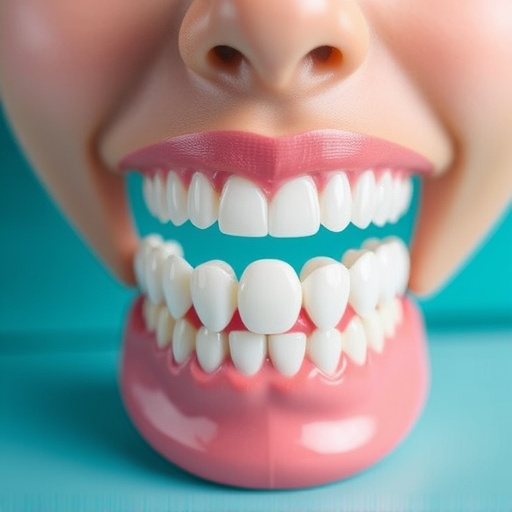
Walk-in dental appointments offer a convenient and accessible solution for individuals seeking regular check-ups and early detection of dental issues. This model of care is particularly beneficial for those who may procrastinate on scheduled visits or have unpredictable schedules. By providing same-day or prompt access to dental services, walk-in clinics encourage patients to maintain their oral health consistently. Regular routine oral exams can catch small problems before they become more significant and costly to treat.
Furthermore, these appointments support preventive care by allowing dentists to perform various procedures, such as dental bonding, to repair minor damages and restore smiles quickly. General dentistry practices that offer walk-in services ensure that patients can address immediate concerns without waiting extended periods. This proactive approach to oral healthcare contributes to better overall health outcomes and peace of mind for individuals who prioritize their well-being.
Strategies for Effective Walk-In Dental Appointments to Promote Oral Health Education
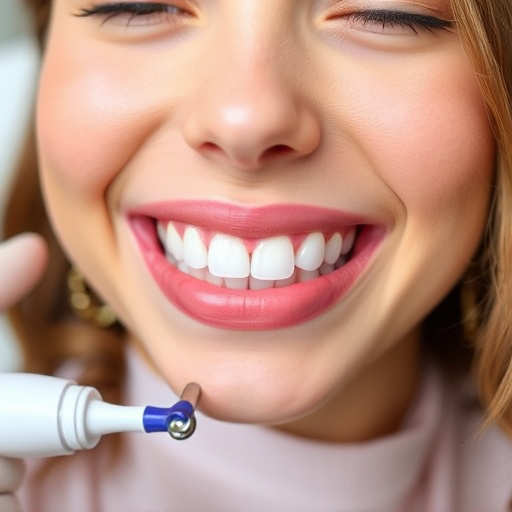
Walk-in dental appointments offer a unique opportunity to promote oral health education and preventive care. One effective strategy is to create an engaging environment where patients feel comfortable asking questions and learning about their oral health. Dental professionals can achieve this by providing clear, concise information during routine checkups and procedures, such as explaining the importance of daily brushing and flossing, demonstrating proper techniques, and addressing common misconceptions.
Additionally, offering educational resources like brochures, videos, or interactive displays can further enhance patient understanding. Regularly scheduled workshops or seminars on topics like nutrition for oral health, oral hygiene for specific demographics (e.g., children, seniors), and the connection between overall health and dental well-being can also be beneficial. By integrating these strategies into walk-in dental appointments, practices can foster a culture of proactive oral care, encouraging patients to take charge of their dental health and preventing more extensive tooth repair needs in the future, thereby promoting comprehensive dental care.
Walk-in dental appointments play a pivotal role in promoting preventive care, offering accessible and efficient solutions for regular check-ups and early oral health detection. By leveraging these appointments, communities can foster better oral hygiene education, ultimately contributing to improved overall health outcomes. Embracing walk-in services as a strategic component of healthcare infrastructure can help ensure that more individuals receive the preventative dental care they need, setting the stage for healthier smiles and well-being.








